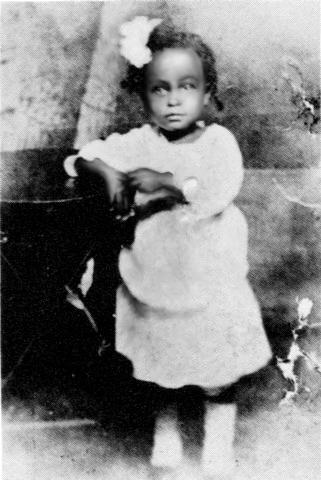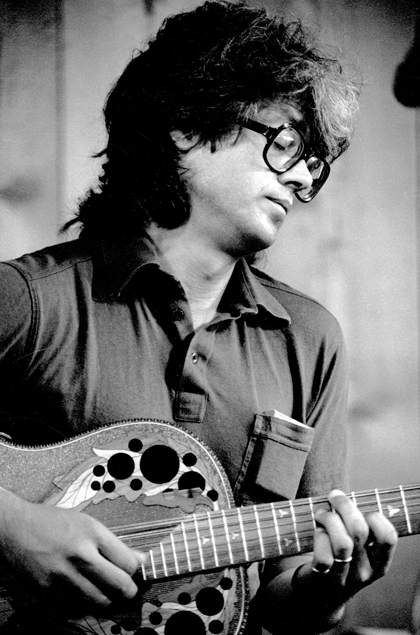|
God Bless The Child (Billie Holiday Song)
"God Bless the Child" is a song written by Billie Holiday and Arthur Herzog Jr. in 1939. It was first recorded on May 9, 1941, by Billie Holiday and released by Okeh Records in 1942. Holiday's version of the song was honored with the Grammy Hall of Fame Award in 1976. It was also included in the list of ''Songs of the Century'', by the Recording Industry Association of America and the National Endowment for the Arts. Billie Holiday recording sessions Billie Holiday recorded the song three times. First recording (Session #44, Columbia/Okeh): Columbia Studio A, 799 Seventh Avenue, New York City, May 9, 1941, Eddie Heywood and his Orchestra with Roy Eldridge (trumpet), Jimmy Powell and Lester Boone (alto saxophone), Ernie Powell (trumpet), Eddie Heywood (piano), Johan Robins (guitar), Paul Chapman (guitar), Grachan Moncur II (bass), Herbert Cowans (drums), Billie Holiday (vocal). Origin and interpretation In her autobiography ''Lady Sings the Blues'' Holiday indicated that a ... [...More Info...] [...Related Items...] OR: [Wikipedia] [Google] [Baidu] |
Billie Holiday
Billie Holiday (born Eleanora Fagan; April 7, 1915 – July 17, 1959) was an American jazz and swing music singer. Nicknamed "Lady Day" by her friend and music partner, Lester Young, Holiday made significant contributions to jazz music and pop music, pop singing. Her vocal style, strongly influenced by jazz instrumentalists, inspired a new way of manipulating Phrase (music), phrasing and tempo. Holiday was known for her vocal delivery and Jazz improvisation, improvisational skills. After a turbulent childhood, Holiday began singing in nightclubs in Harlem where she was heard by producer John Hammond (record producer), John Hammond, who liked her voice. Holiday signed a recording contract with Brunswick Records, Brunswick in 1935. Her collaboration with Teddy Wilson produced the hit "What a Little Moonlight Can Do", which became a jazz standard. Throughout the 1930s and 1940s, Holiday had mainstream success on labels such as Columbia Records, Columbia and Decca Records, Decca. H ... [...More Info...] [...Related Items...] OR: [Wikipedia] [Google] [Baidu] |
Will Friedwald
Will Friedwald (born September 16, 1961) is an American author and music critic. He has written for newspapers that include the ''Wall Street Journal'', ''New York Times'', '' Village Voice'', ''Newsday'', ''New York Observer'', and ''New York Sun'' – and for magazines that include ''Entertainment Weekly'', ''Oxford American'', '' New York'', '' Mojo'', ''BBC Music Magazine'', ''Stereo Review'', ''Fi'', and '' American Heritage''. Selected works Books As main author As co- and contributing-author Essays, articles Journalism: print/online newspapers, magazines, and broadcasts Liner notes Family Father: Herb Friedwald Will Friedwald is the son of the late Herb Friedwald ''(né'' Herbert F. Friedwald; 1935–1997) who was a jazz producer, jazz historian, and record label lawyer in New York. Herb was the founder of the short-lived jazz label, Kharma Records. Among other pursuits, Herb wrote liner notes Liner notes (also sleeve notes or album notes) ... [...More Info...] [...Related Items...] OR: [Wikipedia] [Google] [Baidu] |
Lady Sings The Blues (film)
''Lady Sings the Blues'' is a 1972 American biographical musical drama film directed by Sidney J. Furie about jazz singer Billie Holiday, loosely based on her 1956 autobiography that, in turn, took its title from Holiday's song. It is produced by Motown Productions for Paramount Pictures. Diana Ross, in her feature film debut, portrays Holiday, alongside a cast that includes Billy Dee Williams, Richard Pryor, James T. Callahan and Scatman Crothers. The film was nominated for five Academy Awards in 1973, including Best Actress for Diana Ross. Plot In 1928 Baltimore, Eleanora Fagan, also known as Billie Holiday, works as a 15-year-old housekeeper in a brothel. A man who follows her from the brothel eventually rapes her. She flees to her mother Sadie, who sets her up a job cleaning for another brothel in Harlem. The brothel is run by Lorraine, a woman who pays little money to Billie. Billie tires of scrubbing floors and becomes a prostitute, but soon quits and returns to ... [...More Info...] [...Related Items...] OR: [Wikipedia] [Google] [Baidu] |
Diana Ross
Diana Ross (born Diane Ernestine Earle Ross March 26, 1944) is an American singer and actress. Known as the "Queen of Motown Records", she was the lead singer of the vocal group the Supremes, who became Motown#Major divisions, Motown's most successful act during the 1960s and one of the world's List of best-selling girl groups, best-selling girl groups of all time. They remain the best-charting female group in history, with a total of 12 number-one pop singles on the Billboard Hot 100, U.S. ''Billboard'' Hot 100. Following her departure from the Supremes in 1970, Ross embarked on a successful solo music career with the release of her Diana Ross (1970 album), eponymous debut solo album. She went on to release 26 studio albums, including ''Touch Me in the Morning (album), Touch Me in the Morning'' (1973), ''Diana Ross (1976 album), Diana Ross'' (1976), ''Diana (album), Diana'' (1980), ''Why Do Fools Fall in Love (album), Why Do Fools Fall in Love'' (1981) and ''Swept Away (Diana R ... [...More Info...] [...Related Items...] OR: [Wikipedia] [Google] [Baidu] |
David Clayton-Thomas
David Clayton-Thomas (born David Henry Thomsett, 13 September 1941) is a Grammy Award-winning Canadian musician, singer, and songwriter, best known as the lead vocalist of the American band Blood, Sweat & Tears. Clayton-Thomas began his music career in the early 1960s, working the clubs on Toronto's Yonge Street, where he discovered his love of singing and playing the blues. Before moving to New York City in 1967, Clayton-Thomas fronted a couple of local bands, first The Shays and then The Bossmen, one of the earliest rock bands with significant jazz influences. His main success came only a few difficult years later when he joined Blood, Sweat & Tears. Clayton-Thomas has been inducted into the Canadian Music Hall of Fame and in 2007 his jazz/rock composition "Spinning Wheel" was enshrined in the Canadian Songwriter's Hall of Fame. In 2010, Clayton-Thomas received his star on Canada's Walk of Fame. Early life Clayton-Thomas was born in Kingston upon Thames, Surrey, England, ... [...More Info...] [...Related Items...] OR: [Wikipedia] [Google] [Baidu] |
Blood, Sweat & Tears (Blood, Sweat & Tears Album)
''Blood, Sweat & Tears'' is the second album by the American band Blood, Sweat & Tears, released on December 11, 1968. It was the most commercially successful album for the group, rising to the top of the U.S. charts for a collective seven weeks and yielding three successive Top 5 singles. It received a Grammy Award for Album of the Year in 1970. The album has been certified quadruple platinum by the RIAA, with sales of more than four million units in the U.S. In Canada, the album enjoyed a total of eight weeks at number 1 on the ''RPM'' national album chart. History Al Kooper, Randy Brecker and Jerry Weiss had left BS&T after the first album. Founding members Bobby Colomby and Steve Katz searched for a replacement singer and selected David Clayton-Thomas. Three more musicians joined to bring the band to a total of nine members. Columbia assigned James William Guercio as producer for the album. Guercio was simultaneously working with the band Chicago. "More and More", "Smiling ... [...More Info...] [...Related Items...] OR: [Wikipedia] [Google] [Baidu] |
Blood, Sweat & Tears
Blood, Sweat & Tears (also known as "BS&T") is an American jazz rock music group founded in New York City in 1967, noted for a combination of brass with rock instrumentation. BS&T has gone through numerous iterations with varying personnel and has encompassed a wide range of musical styles. Their sound has merged rock, pop and R&B/soul music with big band jazz. The group's self-titled second album spent seven weeks atop the U.S. charts in 1969 and won the Grammy Award for Album of the Year in 1970. It contained the hit recordings " And When I Die", " You've Made Me So Very Happy", and " Spinning Wheel". All of these peaked at number two on the ''Billboard'' Hot 100. The follow-up album, '' Blood, Sweat & Tears 3'', also reached number one in the U.S. In addition to original music, the group is known for arrangements of popular songs by Laura Nyro, James Taylor, Carole King, the Band, the Rolling Stones, Billie Holiday and many others. The group has also adapted music fro ... [...More Info...] [...Related Items...] OR: [Wikipedia] [Google] [Baidu] |
Jazz Fusion
Jazz fusion (also known as jazz rock, jazz-rock fusion, or simply fusion) is a popular music genre that developed in the late 1960s when musicians combined jazz harmony and improvisation with rock music, funk, and rhythm and blues. Electric guitars, amplifiers, and keyboards that were popular in rock began to be used by jazz musicians, particularly those who had grown up listening to rock and roll. Jazz fusion arrangements vary in complexity. Some employ groove-based vamps fixed to a single key or a single chord with a simple, repeated melody. Others use elaborate chord progressions, unconventional time signatures, or melodies with counter-melodies. These arrangements, whether simple or complex, typically include improvised sections that can vary in length, much like in other forms of jazz. As with jazz, jazz fusion can employ brass and woodwind instruments such as trumpet and saxophone, but other instruments often substitute for these. A jazz fusion band is less likely to use ... [...More Info...] [...Related Items...] OR: [Wikipedia] [Google] [Baidu] |
Blues Rock
Blues rock is a fusion music genre, genre and form of rock music, rock and blues music that relies on the chords/scales and instrumental improvisation of blues. It is mostly an electric ensemble-style music with instrumentation similar to electric blues and rock (electric guitar, electric bass guitar, drums, and sometimes with keyboards and harmonica). From its beginnings in the early to mid-1960s, blues rock has gone through several stylistic shifts and along the way it inspired and influenced hard rock, Southern rock, and early heavy metal music, heavy metal. Blues rock started with rock musicians in the United Kingdom and the United States performing American blues songs. They typically recreated electric Chicago blues songs, such as those by Willie Dixon, Muddy Waters, and Jimmy Reed, at faster tempos and with a more aggressive sound common to rock. In the UK, the style was popularized by groups such as the Rolling Stones, the Yardbirds, and the Animals, who put several blues ... [...More Info...] [...Related Items...] OR: [Wikipedia] [Google] [Baidu] |
Jim Hall (musician)
James Stanley Hall (December 4, 1930 – December 10, 2013) was an American jazz guitarist, composer and arranger. Biography Early life and education Born in Buffalo, New York, Hall moved with his family to Cleveland, Ohio, during his childhood. Hall's mother played the piano, his grandfather played violin, and his uncle played guitar.Hall, Devra "Sketches from PROS Folios: Jim Hall". Copyright 1988-2004. He began playing the guitar at the age of 10, when his mother gave him an instrument as a Christmas present. At 13 he heard Charlie Christian play on a Benny Goodman record, which he calls his "spiritual awakening". As a teenager in Cleveland, he performed professionally, and also took up the double bass. Hall's major influences since childhood were tenor saxophonists Coleman Hawkins, Lester Young, Paul Gonsalves, and Lucky Thompson. While he copied out solos by Charlie Christian, and later Barney Kessel, it was horn players from whom he took the lead. In 1955, Hall attended th ... [...More Info...] [...Related Items...] OR: [Wikipedia] [Google] [Baidu] |
The Bridge (Sonny Rollins Album)
''The Bridge'' is a studio album by jazz saxophonist Sonny Rollins, recorded in 1962. It was Rollins' first release following a three-year sabbatical and was his first album for RCA Victor. The saxophonist was joined by the musicians with whom he recorded for the next segment of his career: Jim Hall on guitar, Bob Cranshaw on double bass and Ben Riley on drums. History In 1959, feeling pressured by the unexpected swiftness of his rise to fame, Rollins took a three-year hiatus to focus on perfecting his craft.Biography Sonny Rollins official website. Accessed October 20, 2007. A resident of the of |
Sonny Rollins
Walter Theodore "Sonny" Rollins (born September 7, 1930) is an American retired jazz tenor saxophonist who is widely recognized as one of the most important and influential jazz musicians. In a seven-decade career, Rollins recorded over sixty albums as a leader. A number of his compositions, including " St. Thomas", " Oleo", " Doxy", and " Airegin", have become jazz standards. Rollins has been called "the greatest living improviser". Due to health problems, Rollins has not performed publicly since 2012 and announced his retirement in 2014. Early life Rollins was born in New York City to parents from the Virgin Islands. The youngest of three siblings, he grew up in central Harlem and on Sugar Hill, receiving his first alto saxophone at the age of seven or eight. He attended Edward W. Stitt Junior High School and graduated from Benjamin Franklin High School in East Harlem. Rollins started as a pianist, then switched to alto saxophone after being inspired by Louis Jordan ... [...More Info...] [...Related Items...] OR: [Wikipedia] [Google] [Baidu] |





